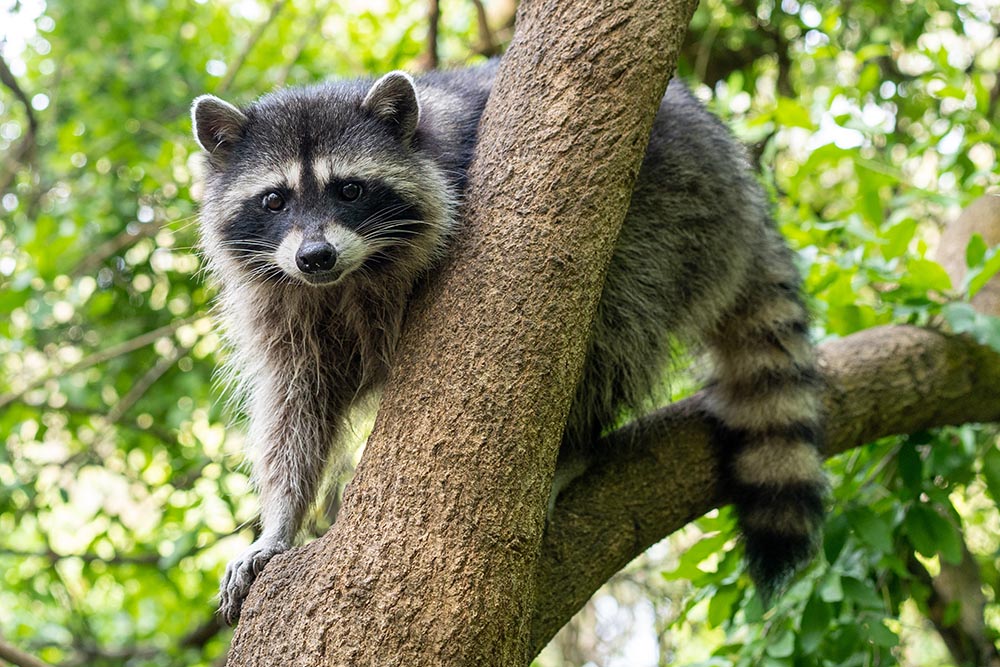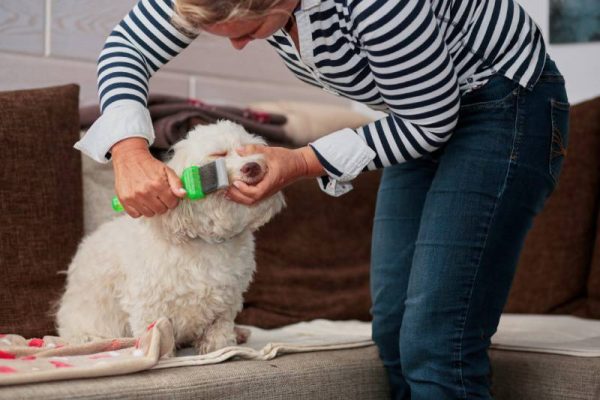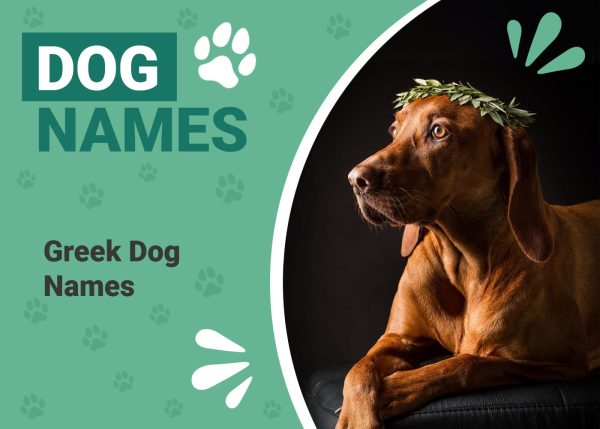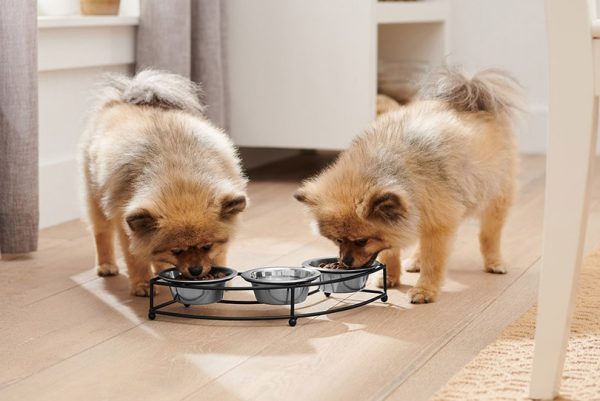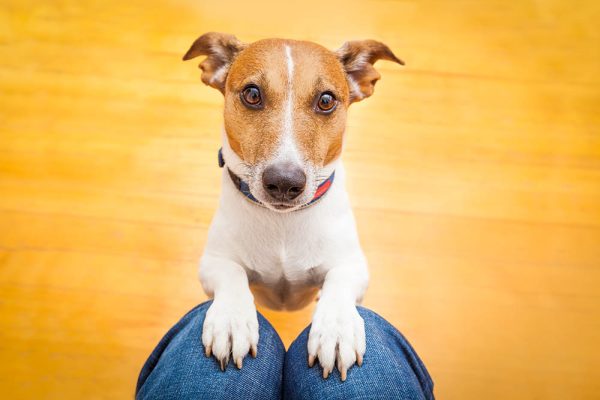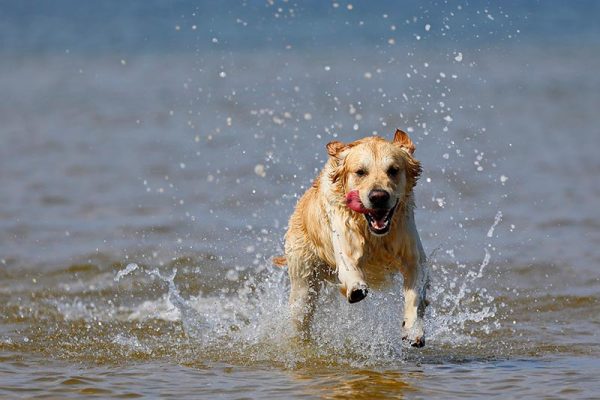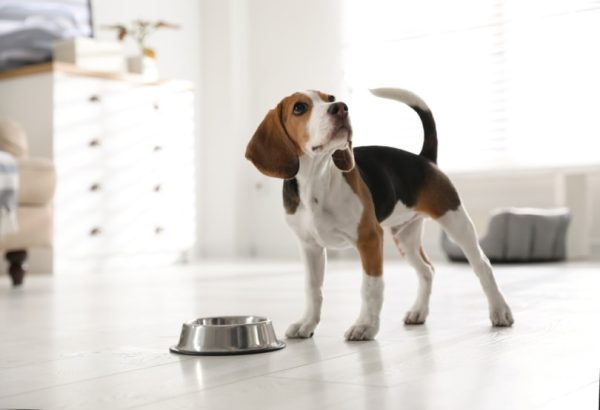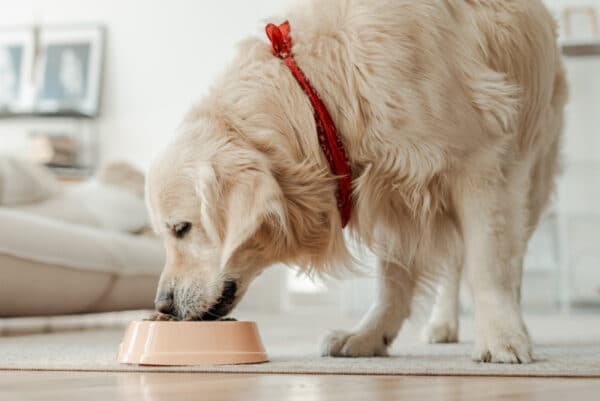In this article
View 3 More +Dogs face all sorts of wild adventures in their time outside, and if they’re unlucky, they may even run into a raccoon! Known as sneaky trash bandits and garden vandals, raccoons don’t usually go out of their way to attack dogs, but they have no problem fighting back if they’re feeling threatened for any reason at all.
If you’re interested in learning more about how dangerous raccoons are to dogs, you’re in the right place. Read on as we explore exactly what dangers they pose to our furry friends, as well as how you can protect your dog from raccoons in the future.

How Are Raccoons Dangerous?
Raccoons are a little bigger than the size of a big cat, which doesn’t sound very dangerous when compared to a large dog breed like a German Shepherd. However, they can be extremely ruthless fighters when cornered or threatened! Just how dangerous are raccoons, though?
Raccoons can be common visitors to your property if you’re a gardener, especially if you grow tasty fruits or veggies. Raccoons are known to live underneath porches, crawl spaces, and even attics when there’s food nearby. They’re also frequent trash can invaders.
Their claws and teeth are a big threat to your dog, capable of doing some serious damage, even to a larger pet. They don’t tussle with dogs often, but raccoons are capable of seriously injuring or even killing small dogs that they come in contact with. Raccoons can also transmit nasty diseases, like roundworm and distemper.
The biggest danger raccoons pose to your dog is rabies. This incurable and typically fatal disease is spread via saliva through a bite. While not every raccoon is going to carry rabies, they are one of the most common wild animals to have the disease. This makes it extremely important that you keep your dog up to date on rabies vaccinations to prevent an infection from a tussle with a raccoon.
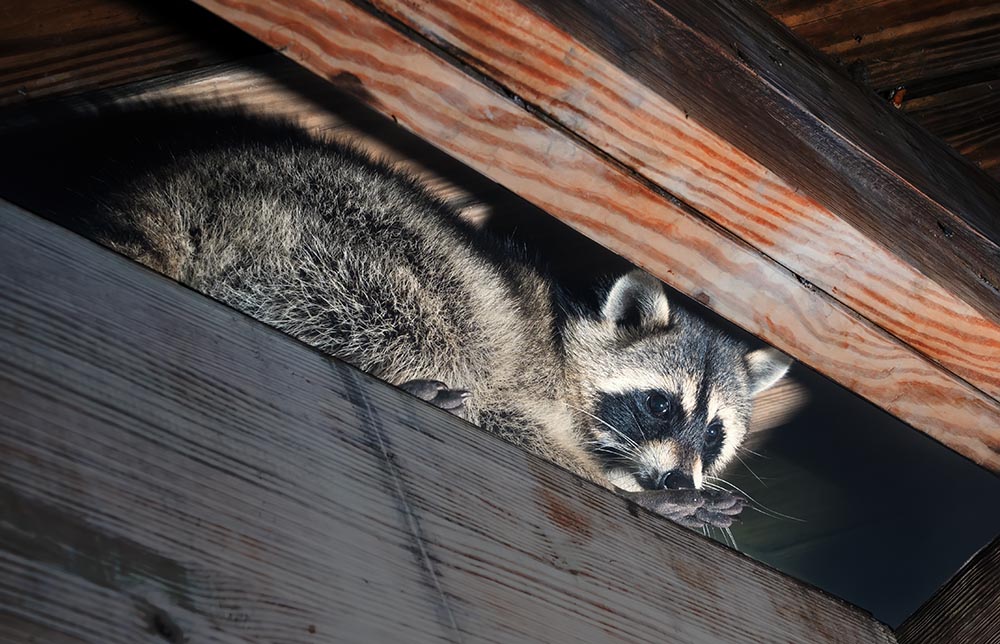
What to Do if Your Dog Is Attacked by a Raccoon
If your dog is attacked by a raccoon, first, call your dog to see if they will come—this is where recall training comes in. If not, try to break the fight up by making a loud noise. If that still doesn’t work, you might grab a long instrument like a rake, broom, or shovel and try to break the fight up by creating distance between your dog and the raccoon. If possible, put on protective padding, like a thick jacket, to protect yourself. It’s likely the raccoon will try to escape during one of these phases.
Once your dog is removed from the situation, check your dog for injuries and load up for a trip to the vet. If they’re bleeding, use an old t-shirt or rag to put pressure on the wound(s).
The vet will clean and dress your dog’s wounds and then start a course of antibiotics to ward off infection. If your dog hasn’t had their rabies shot, the vet may want to keep your dog for further observation in case of a rabies infection.
You can also consult a vet online if you need quick and easy access to an expert’s opinion.
Did you know you can speak to a veterinarian without having to travel? Just head over to PangoVet. It's our online service where you can talk to a vet online and get the advice you need for your pet — all at an affordable price!

Are Raccoons Afraid of Dogs?
Raccoons are typically afraid of dogs, and they will often go to great lengths to avoid them. In fact, getting a dog is sometimes considered a good raccoon deterrent. Despite their fear, raccoons may fight with a dog if they feel cornered or threatened, or if they are trying to protect their offspring.
Tips for Protecting Your Dog & Home From Raccoons
Raccoons are tricky little critters that are too clever for their own good. Their innocent search for a meal can turn into a dangerous scuffle with your dog, so it’s only understandable you want to just keep the buggers away. You can’t completely eliminate raccoons from lurking around, but you can make your home a less enticing target for their burglary.
- Keep trash and food remnants indoors or in secure, locked trash bins. If raccoons can’t get a decent meal, they’ll likely move to a different area.
- Don’t allow your dog outside for long periods of time unsupervised, especially at night.
- Fence gardens and orchards to prevent raccoons from getting to your food.
- Block crawl spaces and attic vents so that animals can’t get in.
- Thoroughly clean any barbecue or outdoor dining areas of any food scraps to deter raccoons.
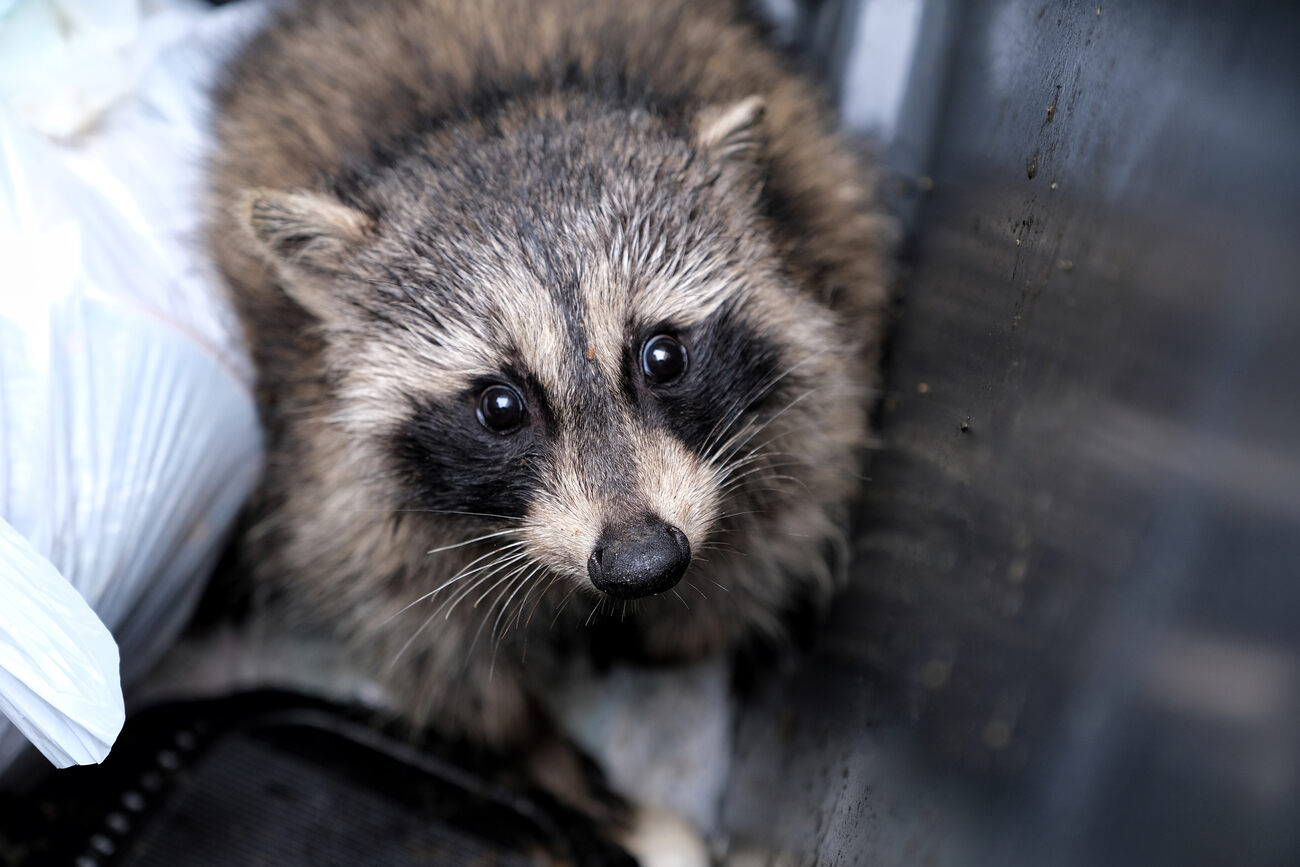

Conclusion
Raccoons don’t typically start fights with dogs but will defend themselves, potentially causing grievous injury and transmitting a laundry list of nasty diseases. It’s important to protect your dog by keeping an eye on them when outdoors, and you can keep raccoons away by securing your trash can and fencing off gardens or orchards. Raccoons rarely linger anywhere they can’t find a quick meal, so prevention is really your best ally here.
Featured Image Credit: Pratish Halady, Shutterstock
